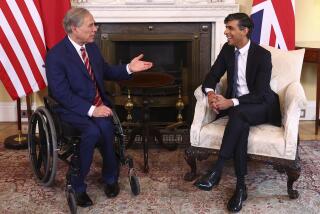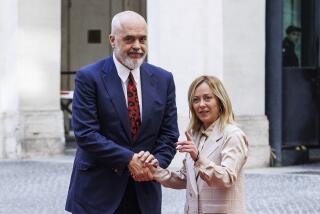Calais, the gateway to France and beyond, could be paralyzed by a ‘hard’ Brexit
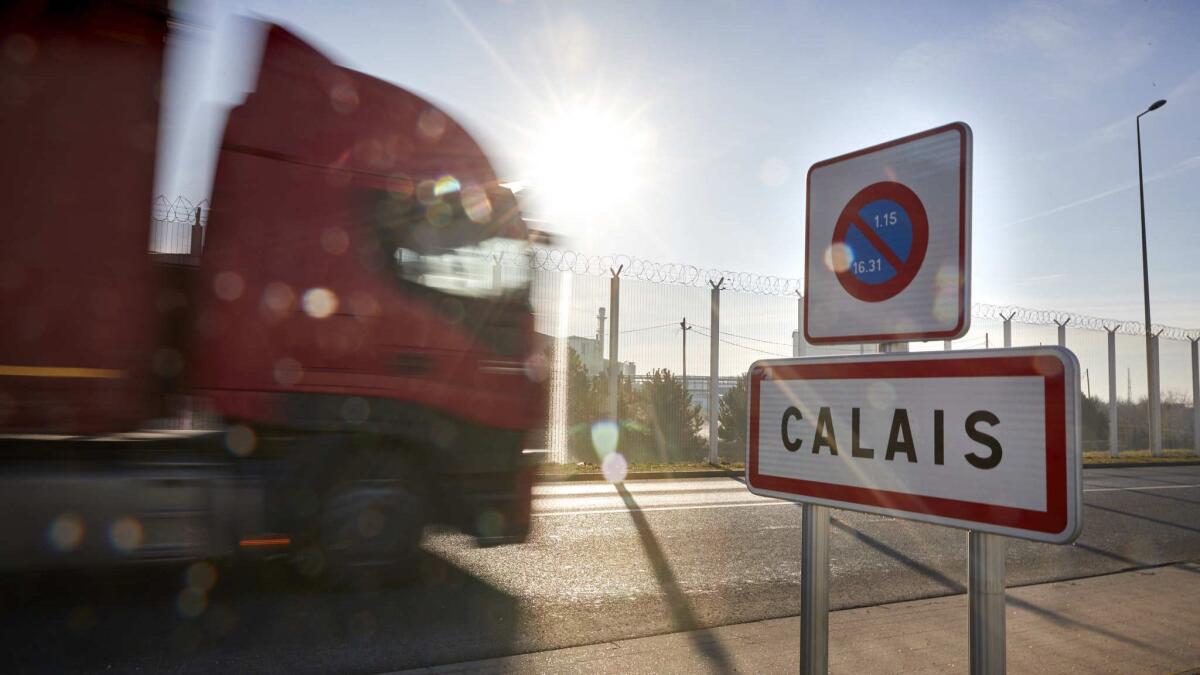
On a clear day, the white cliffs of Dover are visible from the ferry terminal at Calais, 26 miles across the English Channel in northern France.
Calais is Britain’s gateway to continental Europe: 10 million passengers, 2 million trucks and 1.8 million cars pass through the French port each year by ferry. An additional 1.7 million trucks carrying 22 million tons of goods are transported by train on the Eurotunnel Shuttle between Calais and the British port of Folkestone.
Today, as Britain looks increasingly likely to exit the European Union without a departure deal — barring a last-minute agreement — Calais is facing its worst nightmare.
A no-deal or “hard Brexit” would render the United Kingdom a so-called third country in the eyes of Brussels. As such, it would, like the U.S., Canada, Australia and other non-EU countries, be subject to customs checks on entering goods. EU law also requires that all plant and animal products arriving from a “third country” undergo health and safety inspections. Britain has said it will introduce similar checks on goods entering the U.K.
French and U.K. authorities hope most of the traffic can be registered and processed online before arriving at the ports. But beginning one minute past midnight on March 30, this could mean up to one-third of the trucks arriving from the U.K. in Calais — those carrying such products as meat, plants or live animals that are subject to sanitary or veterinary checks — would need to be inspected.
While the British government has suggested it could minimize formalities for trucks arriving from the continent at Dover and other ports, the situation for merchandise entering the EU is more complicated.
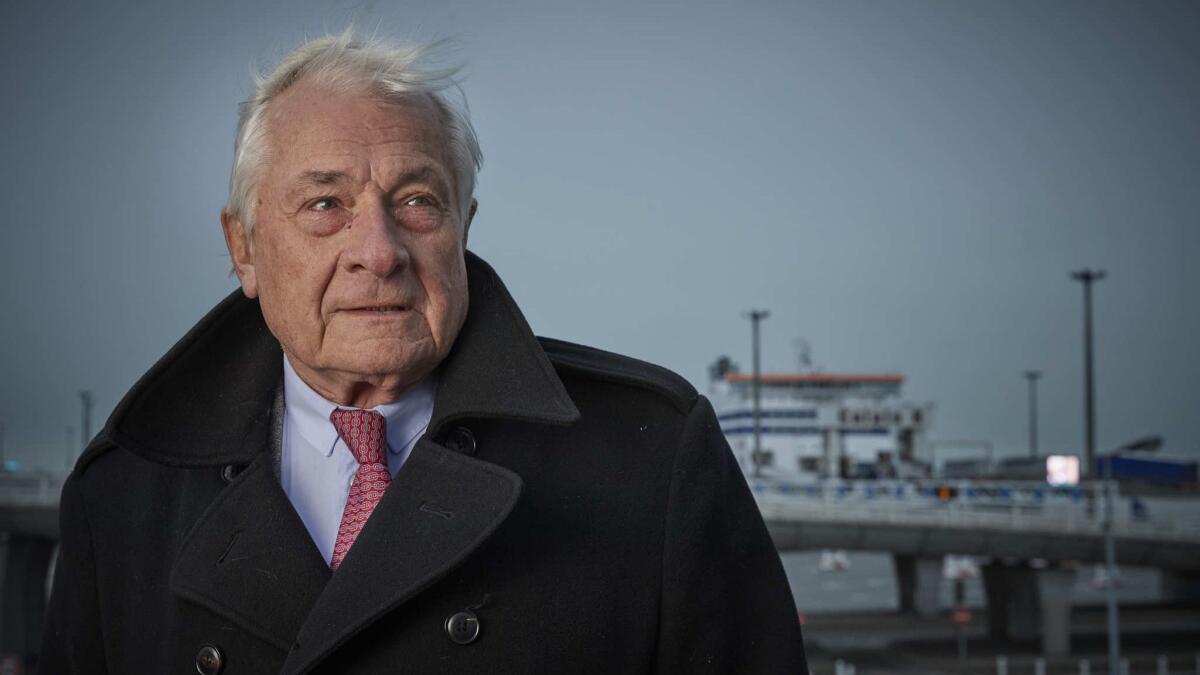
“The U.K. knows that products coming from Europe conform to EU regulations and have been controlled for health and safety so there’s no risk from them,” says Jean-Marc Puissesseau, president of the company that runs the Calais port, the Societe d’Exploitation des Ports du Detroit.
“We in Europe won’t know if products coming from the U.K. were produced and made there or are from elsewhere or if they are compatible with EU standards. That’s why we must check.”
The prospect of increased checks has led to dire warnings of gridlock on roads either side of the channel. And for Calais, more than a third of the town’s economic activity is dependent on the port.
Xavier Bertrand, chairman of the Hauts-de-France region that includes Calais, said there was a real danger of the port grinding to a standstill.
“Even at the moment you can see queues of more than half a mile to the tunnel and that is where there are no checks. Imagine what it will be like with checks,” Bertrand has said.
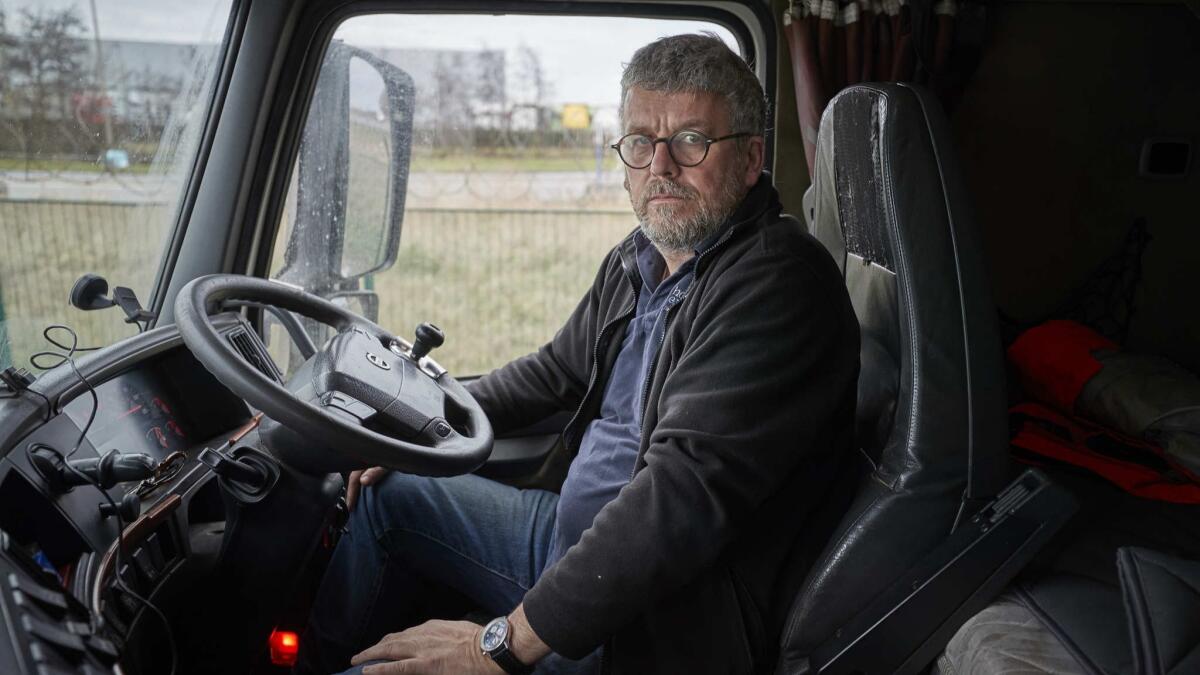
Simon Wilkinson, a British truck driver, says that on some days he already waits up to seven hours before being able to board a ferry back to the U.K. “And this is what it’s like before you factor in any extra checks for Brexit,” he said.
Wilkinson’s company, Harrier Express, based in the south of England, operates a fleet of 18 trucks crossing the channel each day. On this particular day, he was headed to Belgium to pick up frozen vegetables destined for British pubs, restaurants and schools.
“Where Brexit is now heading is destructive … and the haulage industry is stuck in the middle of it,” he said. “The worst thing is the uncertainty. We hear so many contradictory stories we don’t know where the hell we are.”
Calais port authorities say they are working to ensure “frictionless” trade continues. They are spending $6.8 million on infrastructure including buildings where health and veterinary checks can be carried out.
Much would rest on trucks obtaining customs documents online before arriving at the port, papers that could, in theory, be checked during the channel crossing. However, even the optimistic Puissesseau admitted that French and British computer systems “don’t speak to each other.”
As B-Day approaches, the French government has activated a “no deal” plan unlocking $57 million for security at ports and airports. It has begun recruiting an additional 740 customs officials and veterinary inspectors and has passed legislation allowing it to push through laws by emergency decree if necessary.
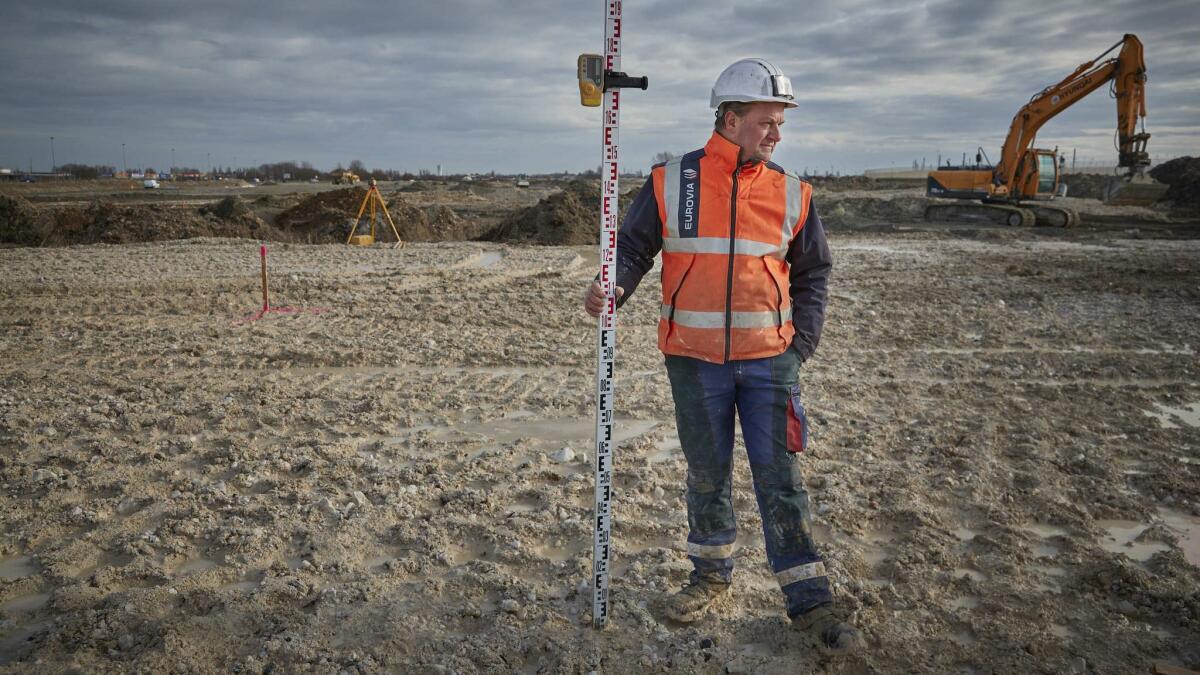
Bulldozers recently worked to flatten a 7.4-acre site near the Eurotunnel as a “park-up” for trucks awaiting sanitary and customs inspections. Prefab buildings are to be installed before the end of March.
“Hard Brexit or not, there will be additional checks, there is no doubt about that,” Romain Dufour, a spokesman for the tunnel operator, Getlink, told journalists.
The British Parliament has rejected the withdrawal agreement signed between Prime Minister Theresa May and EU negotiators that would have paved the way for a transition period until December 2020 during which time current trading arrangements between the U.K. and EU would continue. May is returning to Brussels in the hope of further Brexit talks, but the EU has already issued a categorical “no” to any reopening of negotiations, leaving Calais in limbo.
Another problem is the hundreds of migrants desperate to reach the U.K. who wait along the roads leading to the port and tunnel in the hope of scrambling aboard trucks as they slow down.
“If we have lorries backed up on roads or parked up that’s a problem — it’s going to be a problem controlling intrusions,” said Thierry Grumiaux of the National Federation of Road Transporters. “The new buildings for the extra checks haven’t been built yet and we just don’t know if things will be ready for March 30.”
Truckers would have the option of diverting to Dunkirk, 27 miles to the northeast, but the crossing to the U.K. is 30 minutes longer and would still remain beset by the same issues of delays and migrants.
Oliver Versmisse runs a family wine wholesaler near the Eurotunnel and like many from Calais, fears for the post-Brexit future.
“We have the impression that it’s all a big mess,” he said. “In the U.K., everyone seems to be going around in circles. We have many British people who come here to buy wine and alcohol in large quantities for weddings, engagement parties, christenings … will they be stopped and limited to what they can take back?”
That is the type of question most everyone in Calais is asking.
“Even today we don’t know. Will it be a hard Brexit, smooth Brexit, nothing Brexit … Who knows? Nobody,” said Puissesseau. “What we know is that the fate of Calais and Dover are inextricably linked. And if Brexit hits the British economy it will hit Calais.”
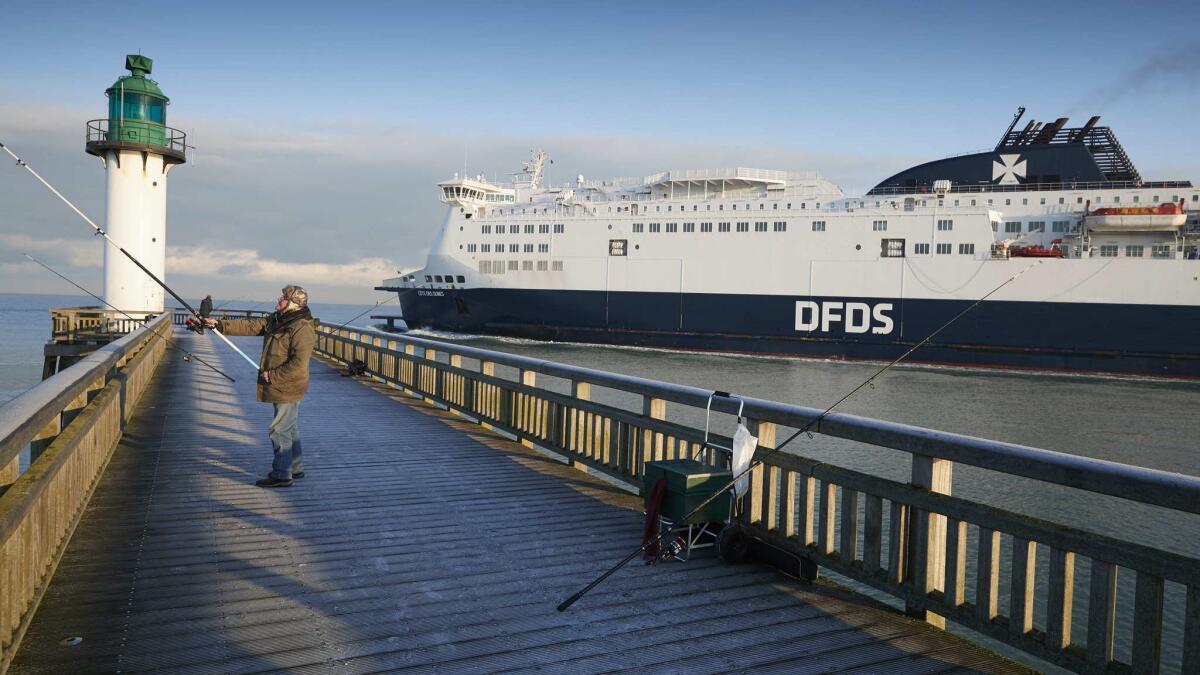
Puissesseau is anxious that Calais not lose trade to its northern rivals, including ports in Belgium and Holland, and is publicly bullish that even if it is a “no deal” Brexit, Calais will rise to the challenge.
He nods out of the window to the trucks moving along the roadways to the ferries in a seemingly choreographed fashion.
“See how smoothly they all run. It’s quite beautiful … like a ballet,” he says.
The question is, for how much longer? Even if Calais avoids gridlock, extra checks on trucks transporting food and meat mean delays for hauliers; delays many like small businessman Simon Wilkinson can ill afford.
“The problem,” he said, “is, if we’re sitting in queues we’re not earning money.”
Willsher is a special correspondent.
More to Read
Start your day right
Sign up for Essential California for news, features and recommendations from the L.A. Times and beyond in your inbox six days a week.
You may occasionally receive promotional content from the Los Angeles Times.

